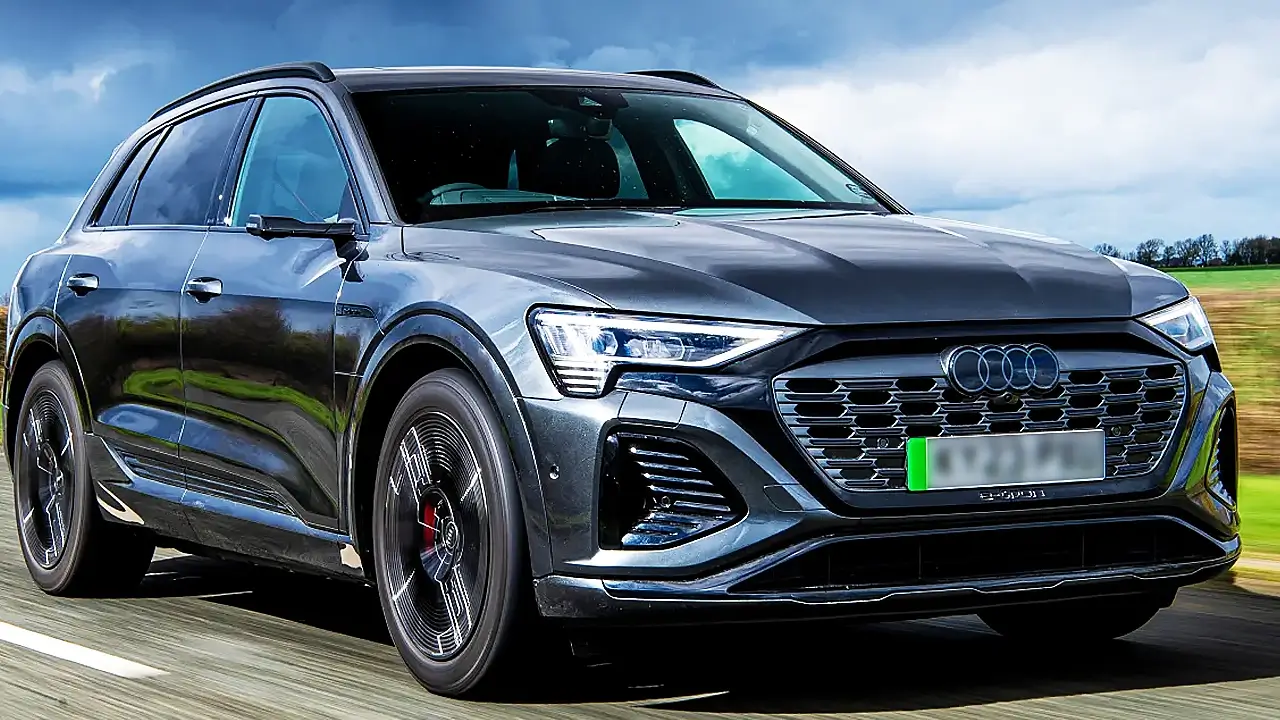Key Highlights
- Understanding Market Dynamics: This article provides a clear explanation of the factors influencing the decline in demand for the Q8 e-tron, offering valuable insights into market trends.
- Impact on Manufacturing: The potential closure of the Brussels plant is discussed in detail, highlighting the economic and strategic implications for Audi and its workforce.
- Future of Electric Vehicles: The article sheds light on the broader shifts in the EV market, particularly in the luxury segment, and how automakers adapt to these changes.
Introduction
Audi, the luxury arm of Volkswagen, is navigating turbulent waters in the electric vehicle (EV) market. The automaker has announced the potential early termination of its flagship electric SUV, the Q8 e-tron, and its Sportback variant. This move comes despite a recent 2024 refresh that aimed to bolster the vehicle’s appeal with sharper aesthetics and improved range. The declining demand in the electric luxury segment is a significant concern for Audi, threatening not just the Q8 e-tron’s future but also the operational status of its Brussels, Belgium manufacturing plant.
The Audi Q8 E-Tron EV: A Brief History
The Q8 e-tron debuted in 2019 as Audi’s pioneering foray into the electric luxury SUV market. Initially launched simply as the e-tron, the model was rebranded to the Q8 e-tron in 2024 to better align with Audi’s broader SUV lineup. The refresh included not only a name change but also cosmetic updates and enhanced battery performance, aiming to maintain its competitive edge. The addition of the Sportback variant in 2020 further expanded the lineup, catering to a broader range of consumer preferences.
Declining Demand and Market Shifts
Despite these efforts, Audi has experienced a “global decline in customer orders in the electric luxury class segment.” This trend is evident across the industry as newer, more advanced EV models enter the market. Audi’s upcoming Q6 e-tron, built on the Premium Platform Electric (PPE) architecture, exemplifies the shift towards newer platforms that offer improved performance and efficiency. As consumers gravitate towards these newer models, the demand for the Q8 e-tron and its Sportback counterpart has diminished significantly.
Audi Q8 E-Tron EV Sales Down -Potential Plant Closure in Brussels
The production of the Q8 e-tron and its Sportback variant currently takes place at Audi’s Brussels facility. However, the drop in demand has led Audi to consider ending production prematurely. The automaker has acknowledged that structural challenges at the Brussels plant complicate any potential retooling efforts. Audi has noted that these difficulties, coupled with high production costs, could make a complete cessation of operations a plausible outcome if no alternative production plans are developed.
- Audi GT50 Concept: A Loud Reminder of Why Car Enthusiasts Fell in Love With Audi
- Nearly 30% of UK Drivers Believe Car Tax Should Be Based on Mileage — Survey
- Why Planes and Boats Escaped the Luxury Tax But Cars Didn’t
- Australia’s Headlight Confusion: Authorities Warn Drivers After Viral $250 Headlight Rule Goes Wild Online
- 2025 Hyundai Venue Facelift Launched in India – Full Details, Variants, and Price
The Economic and Strategic Implications
The potential closure of the Brussels plant carries substantial economic and strategic implications for Audi and the broader Volkswagen Group. The facility is a key part of Audi’s manufacturing network, and its closure would not only disrupt production but also have a significant impact on the local workforce and economy. Audi’s decision underscores the broader challenges facing the electric vehicle industry, particularly in the luxury segment where high development and production costs must be balanced against consumer demand and market dynamics.
Future Outlook and Strategic Shifts
As Audi navigates this transition, the focus will likely shift towards newer models like the Q6 e-tron, which promise better performance and technological advancements. The automaker’s strategy will need to adapt to the evolving market landscape, emphasizing flexibility and innovation. The potential restructuring or closure of the Brussels plant will be a critical factor in Audi’s long-term strategy, determining how effectively the company can pivot to meet changing consumer preferences and market conditions.
Conclusion
Audi’s announcement regarding the potential early end of the Q8 e-tron and the possible closure of its Brussels plant highlights the challenges and strategic decisions facing automakers in the rapidly evolving EV market. As consumer preferences shift and new models emerge, companies like Audi must adapt swiftly to remain competitive. The outcome of these decisions will not only shape Audi’s future but also serve as a bellwether for the broader luxury EV market.

